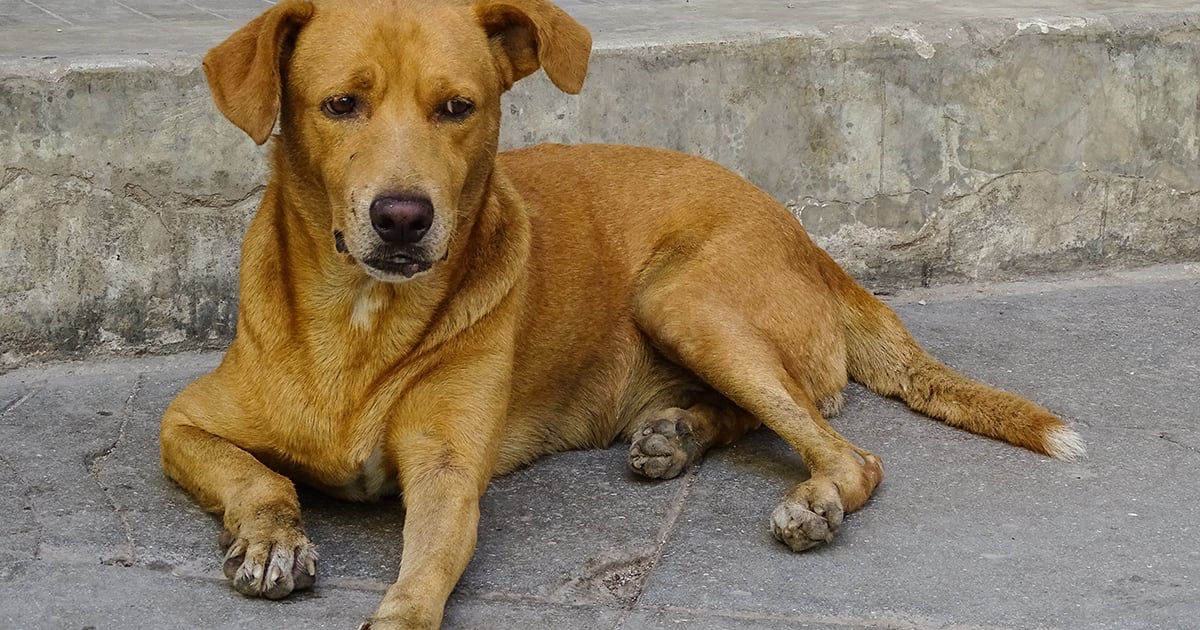
Animal shelters in Cuba have reported a significant increase in the number of abandoned dogs and cats due to the massive exodus of the population and the worsening economic crisis on the island.
This circumstance has forced animal rights activists to try to find solutions and also to aim to increase the number of adoptions, according to a recent report by the Associated Press agency.
While there are no official figures or estimates on how many pets have been abandoned by their owners, the number of abandoned cats and dogs has skyrocketed in the past two years as Cubans emigrate in record numbers.
“We received a phone call from someone asking us to take care of their pets because they are suddenly migrating and don't know what to do with them,” said veterinary technician Elizabeth Meade, founder of Adopciones por Amor, an animal shelter in the capital, in statements to AP.
Although that shelter found a home for about 300 pets last year, many of them were returned or simply disappeared after their new owners also decided to emigrate, which reveals that for those little animals, there is not always a happy ending.
After being abandoned by their owners who left Cuba or simply can no longer care for them, the dogs were rescued by activists, are being fed, sterilized, and efforts are being made to find them a new home.
However, some are not so lucky and end up wandering the streets.
For many Cubans, taking their pets with them is not an option because transporting an animal from Havana to Miami through a specialized agency—even for a short distance like in this case—can cost up to $1,200, including medical exams and the flight.
In addition, since September of this year, pet owners must pay an additional 1,300 dollars to comply with the legal obligation of a quarantine.
The process of taking a pet out of Cuba is complex and, in addition to being expensive, is filled with regulations and bureaucratic barriers.
However, not everyone is willing to abandon their pets forever, and some Cubans manage to reunite with their animals after a few months.
In 2023, the number of pet export certificates also skyrocketed. A report published in November of last year revealed that the 2,000 certificates issued by that month doubled the emissions of 2022.
The United States allows those who enter the country legally to be accompanied by their pets, but has placed Cuba on a list of countries with a high risk of rabies, which complicates the process.
Cuba does not have a laboratory approved by the United States, which means that rabies blood tests must be sent to U.S. territory for analysis, adding obstacles and delays to the process.
Although pets and their owners face challenging regulations, the efforts of activists and organizations have made it easier for many animals to reunite with their families abroad.
Taking care of a pet is prohibitive for many Cubans.
On the other hand, taking care of a pet on the island can be prohibitively expensive for most Cubans.
A 20-kilogram bag of imported dog food can cost up to 70 dollars, and a visit to the veterinarian costs the equivalent of 10 dollars, the cited source points out.
It is important to note that the average monthly salary in the state sector - which continues to be the largest employer at the national level - is about 21 dollars.
Although animal rights activism, which has had its great showcase of dissemination and support on the internet, has managed to alleviate the massive abandonment of pets, the truth is that this continues to be one of the less pleasant and more sensitive aspects of a massive emigration that has eroded many areas of life on the island.
What do you think?
COMMENTFiled under: